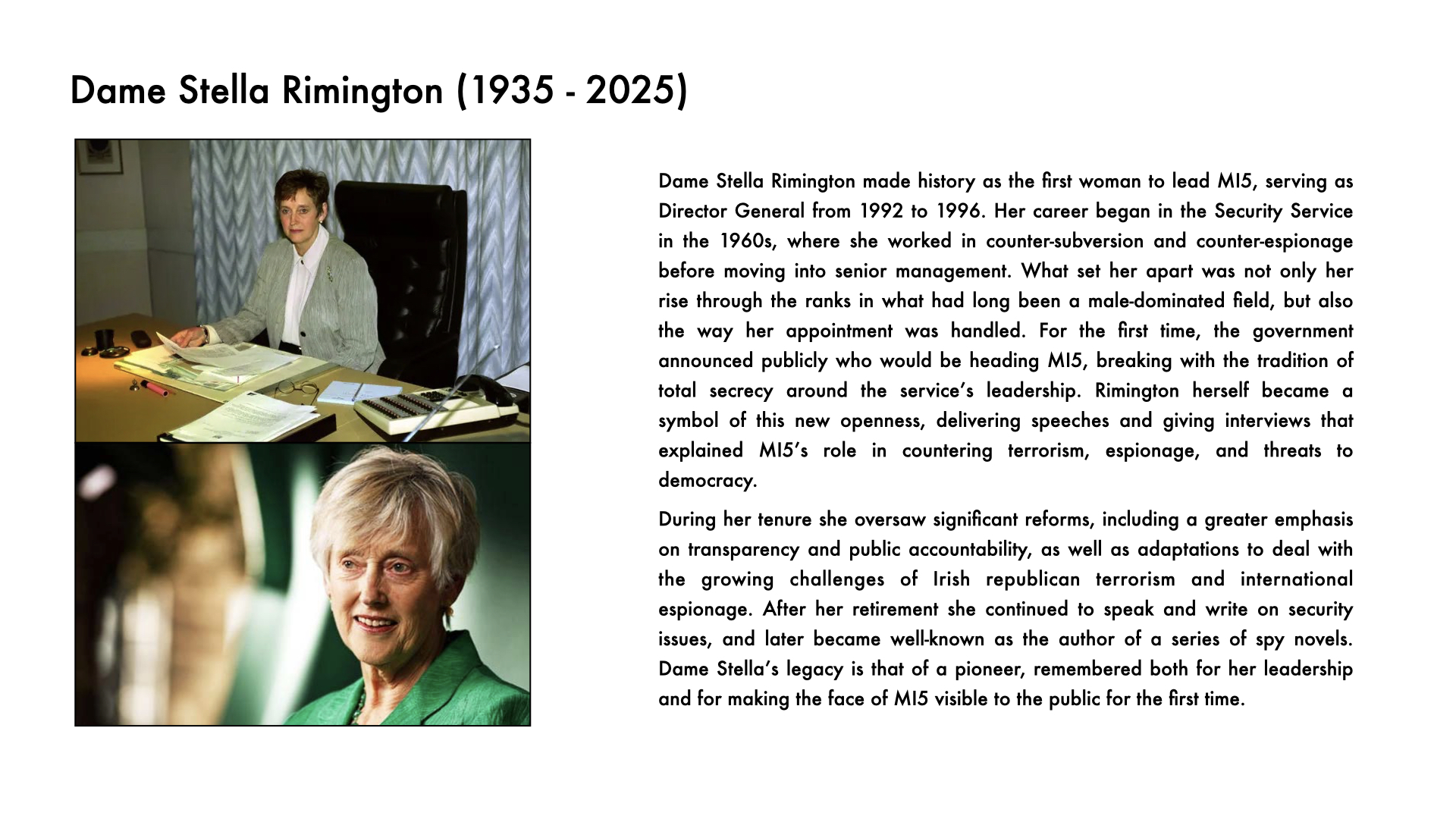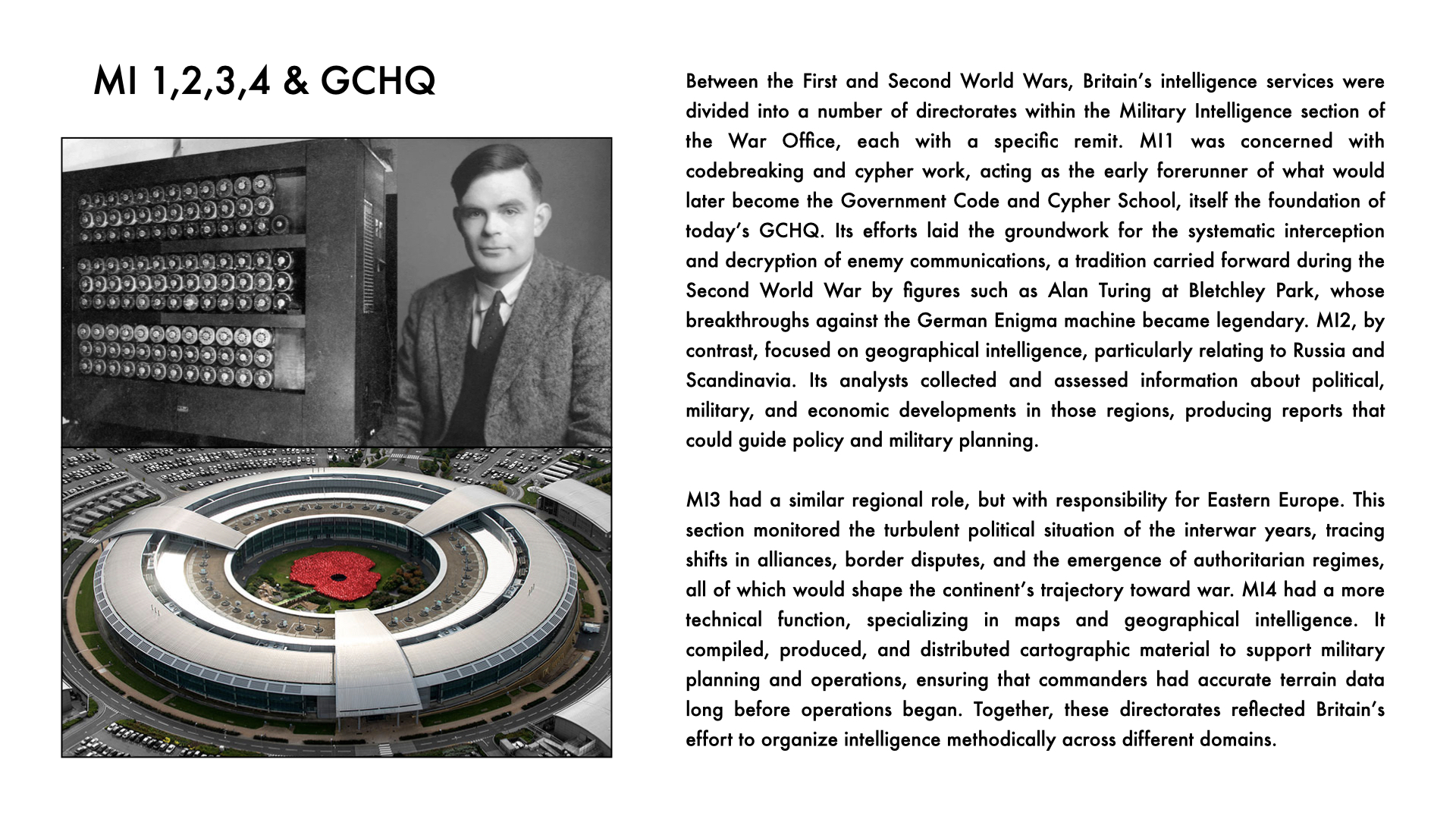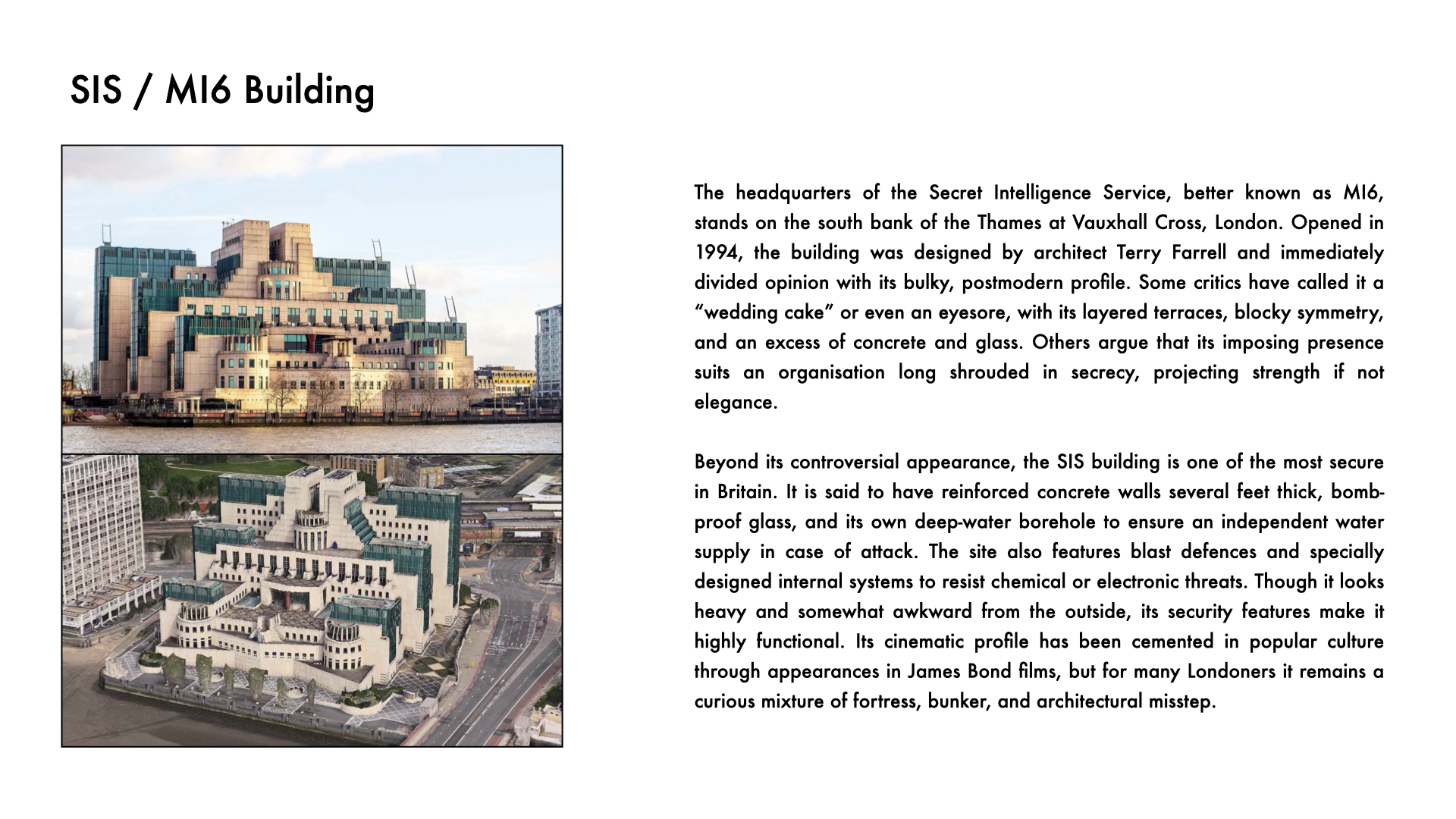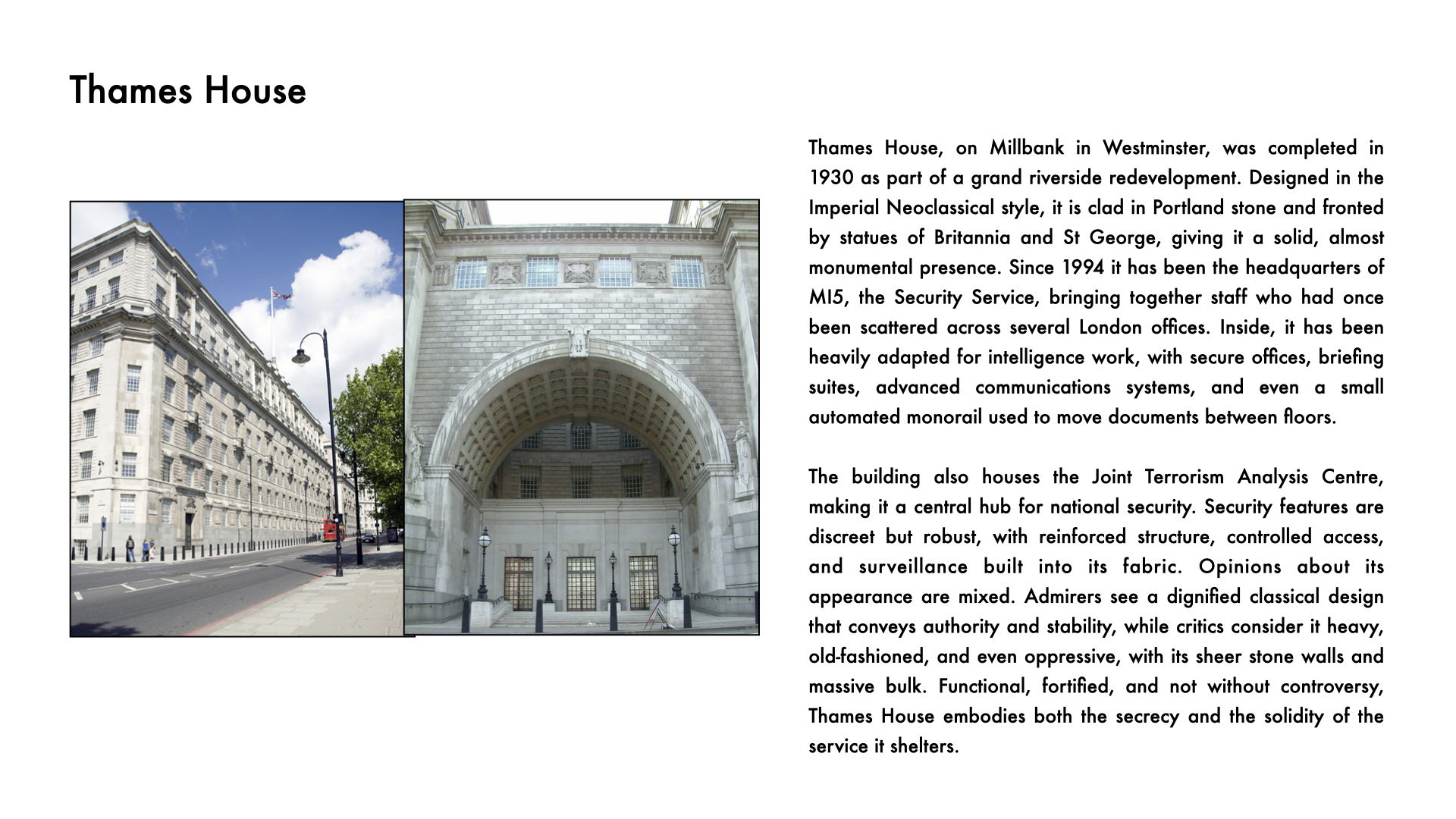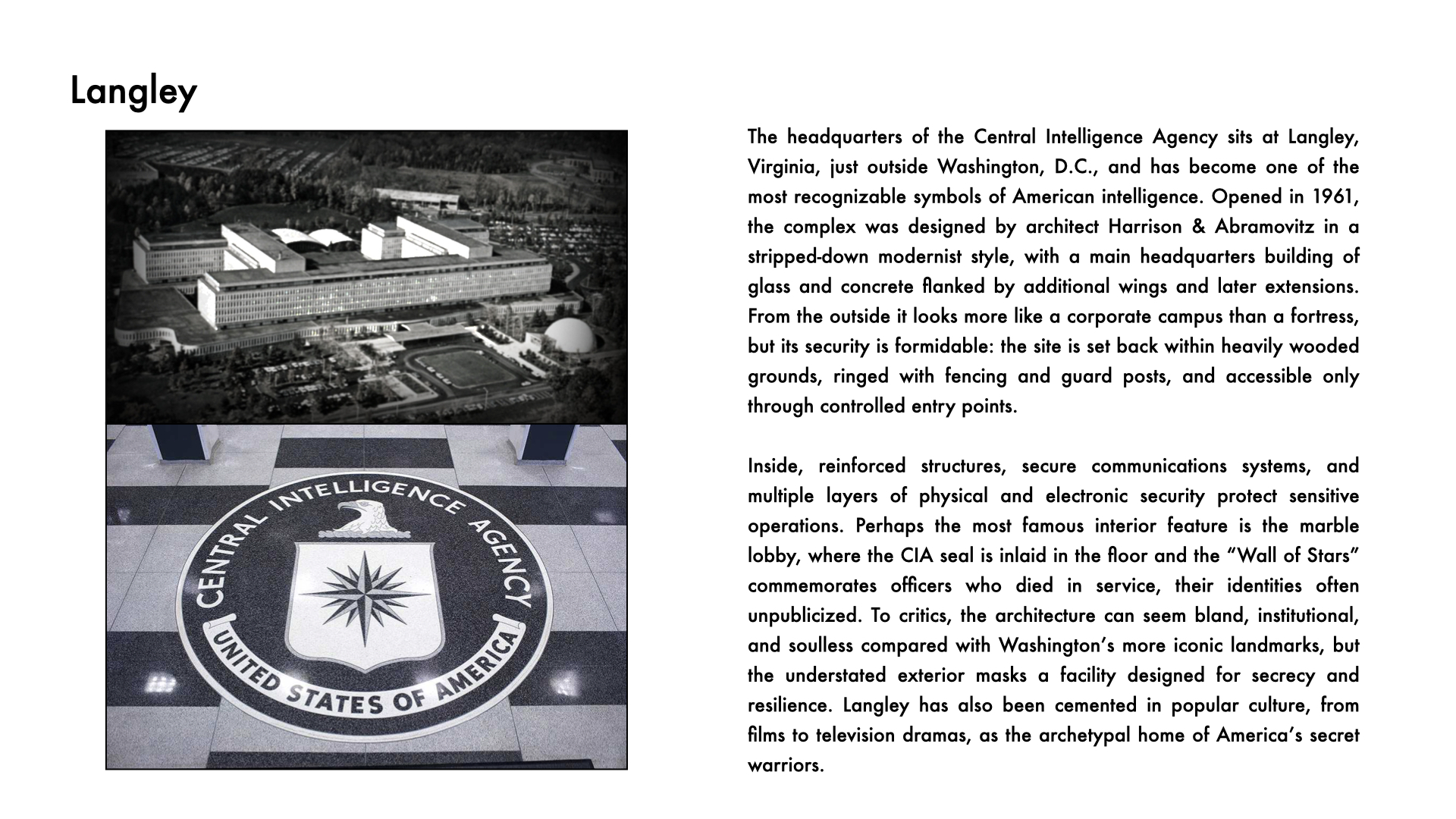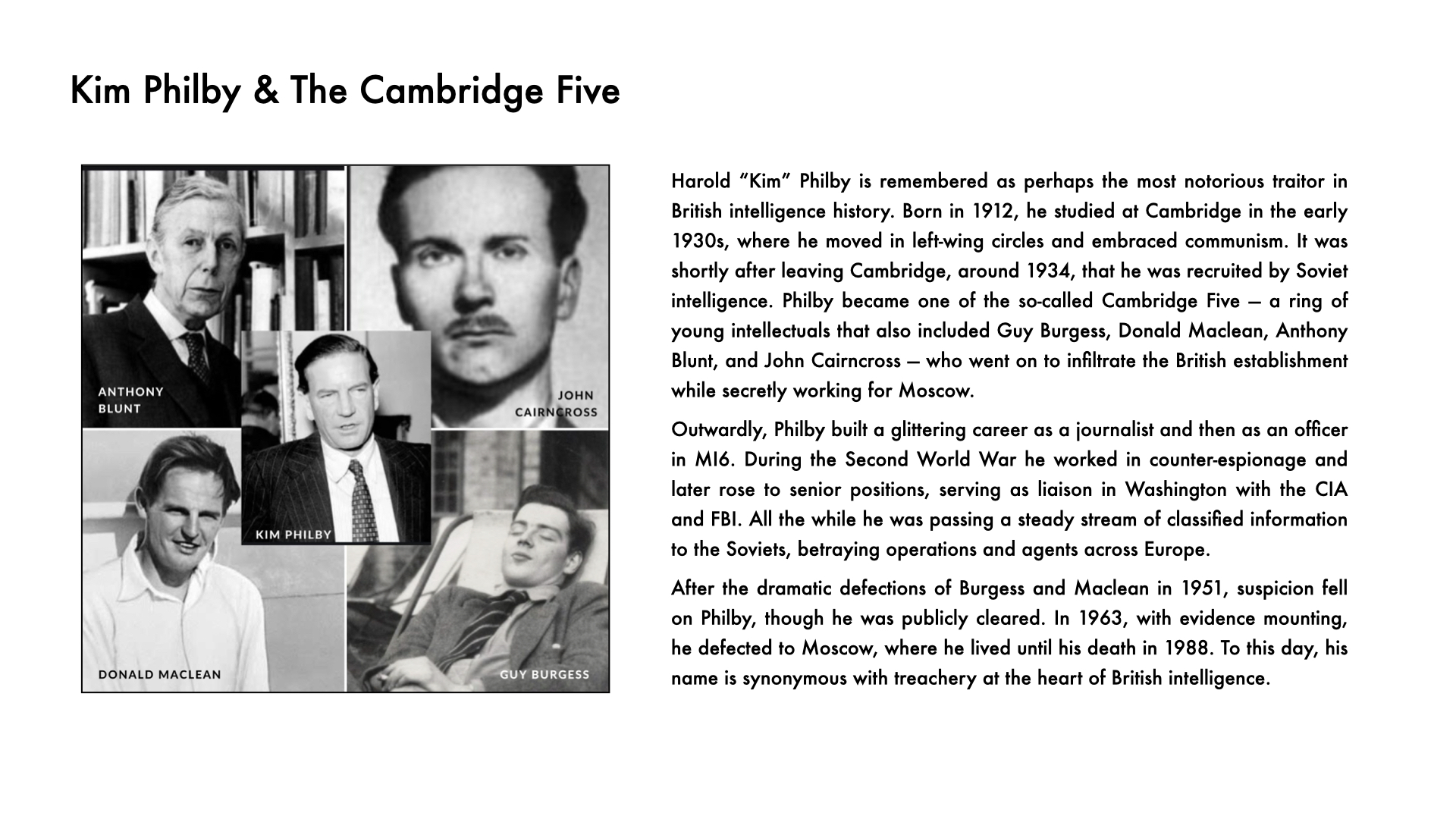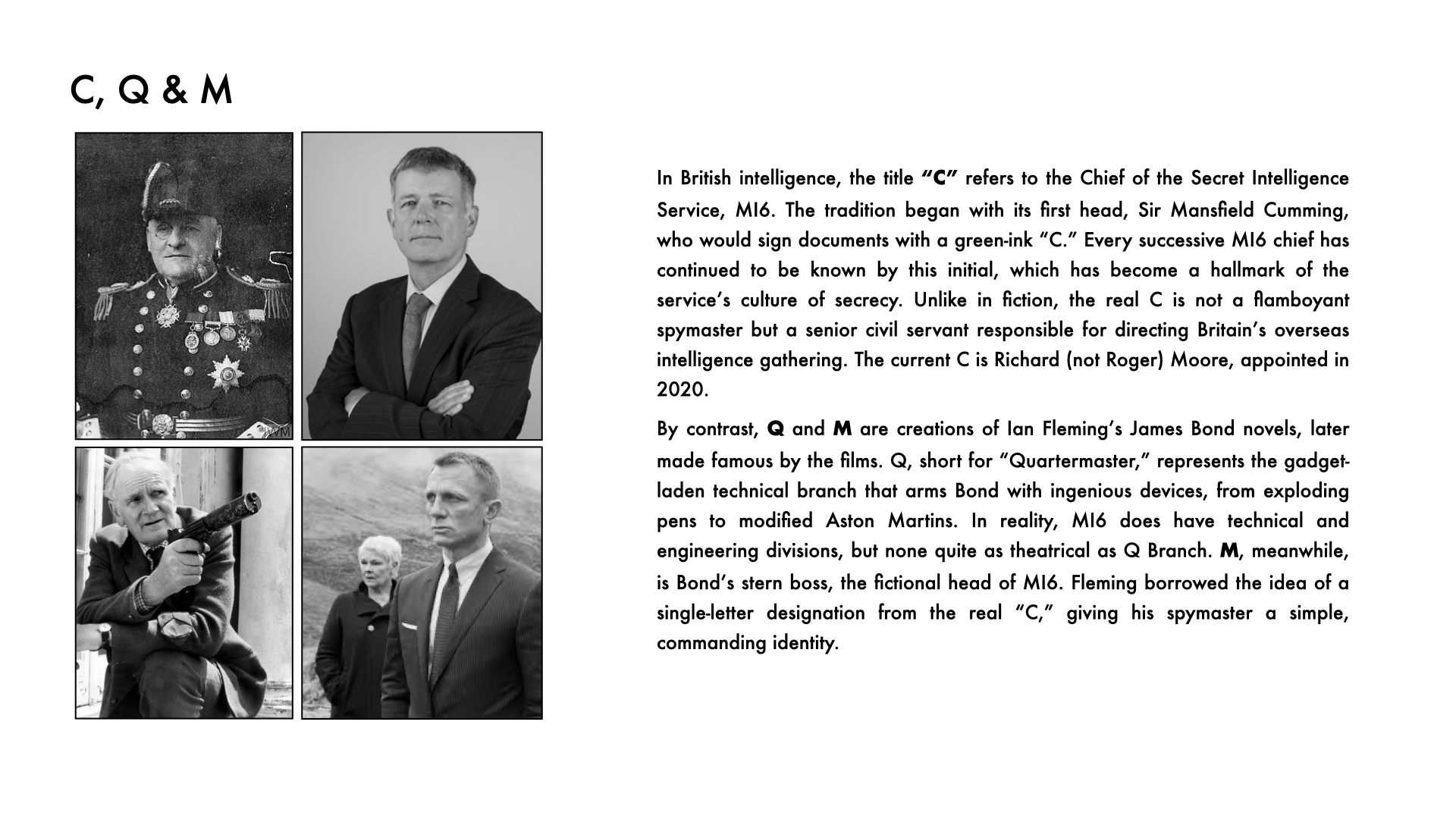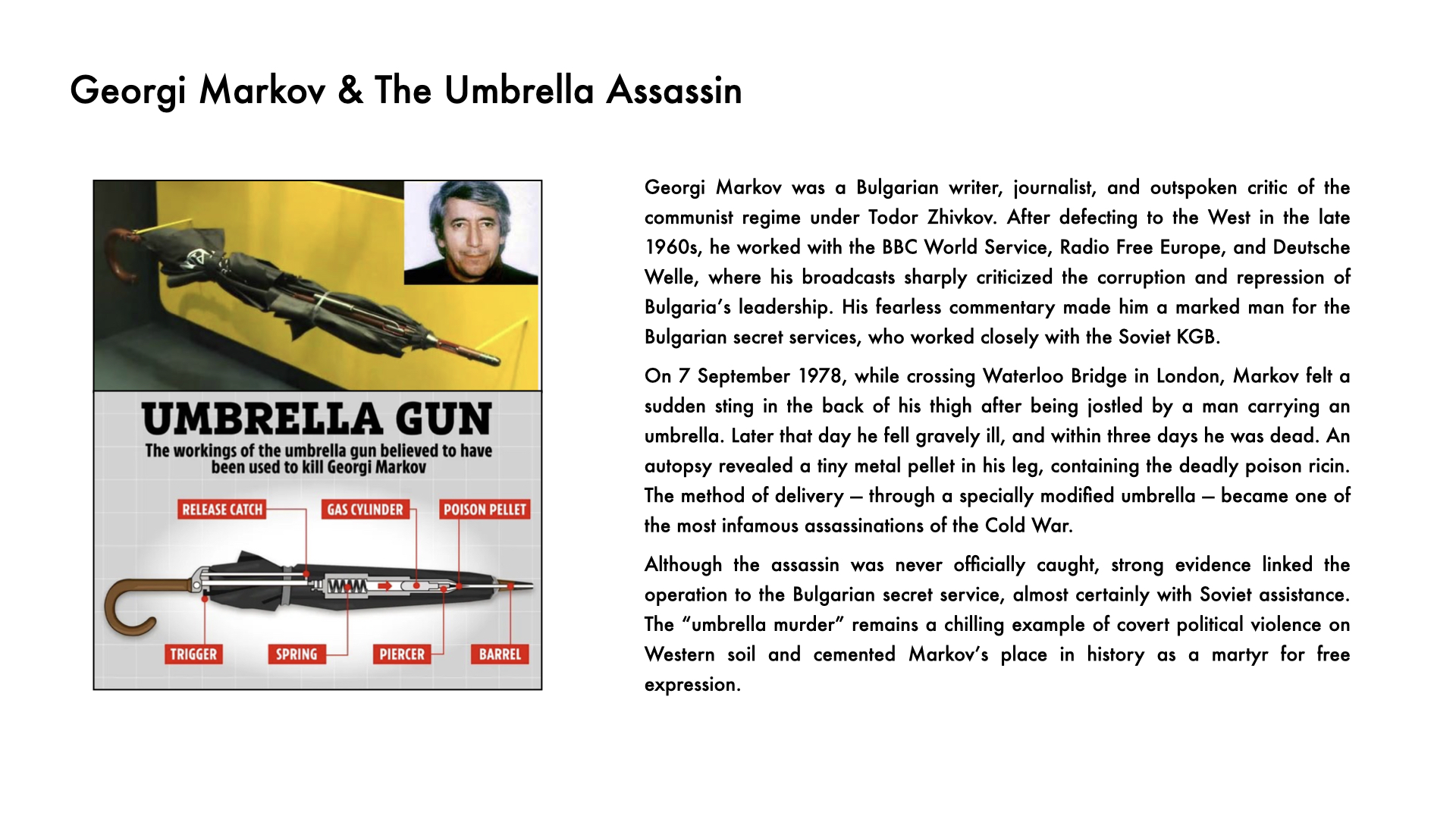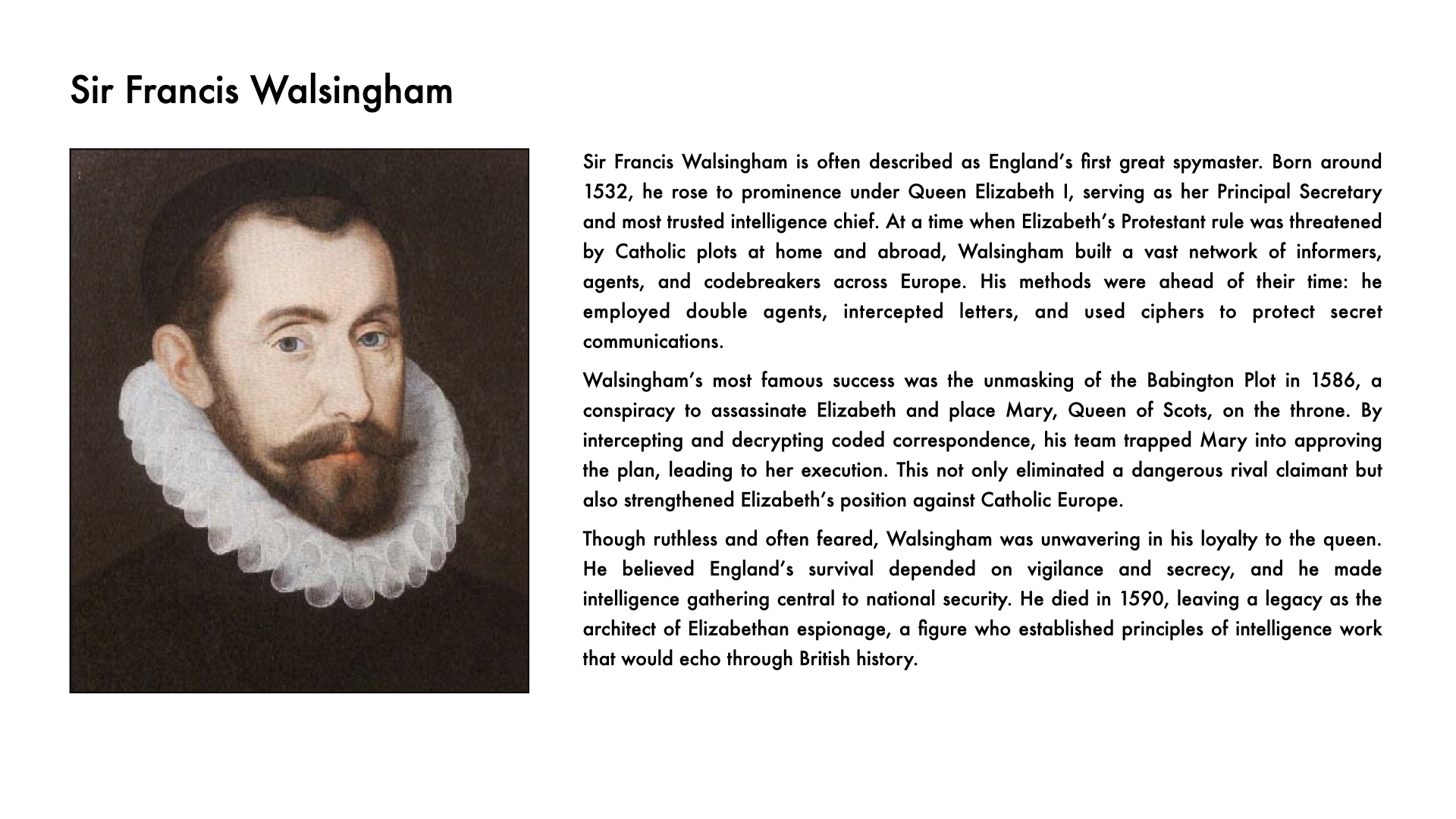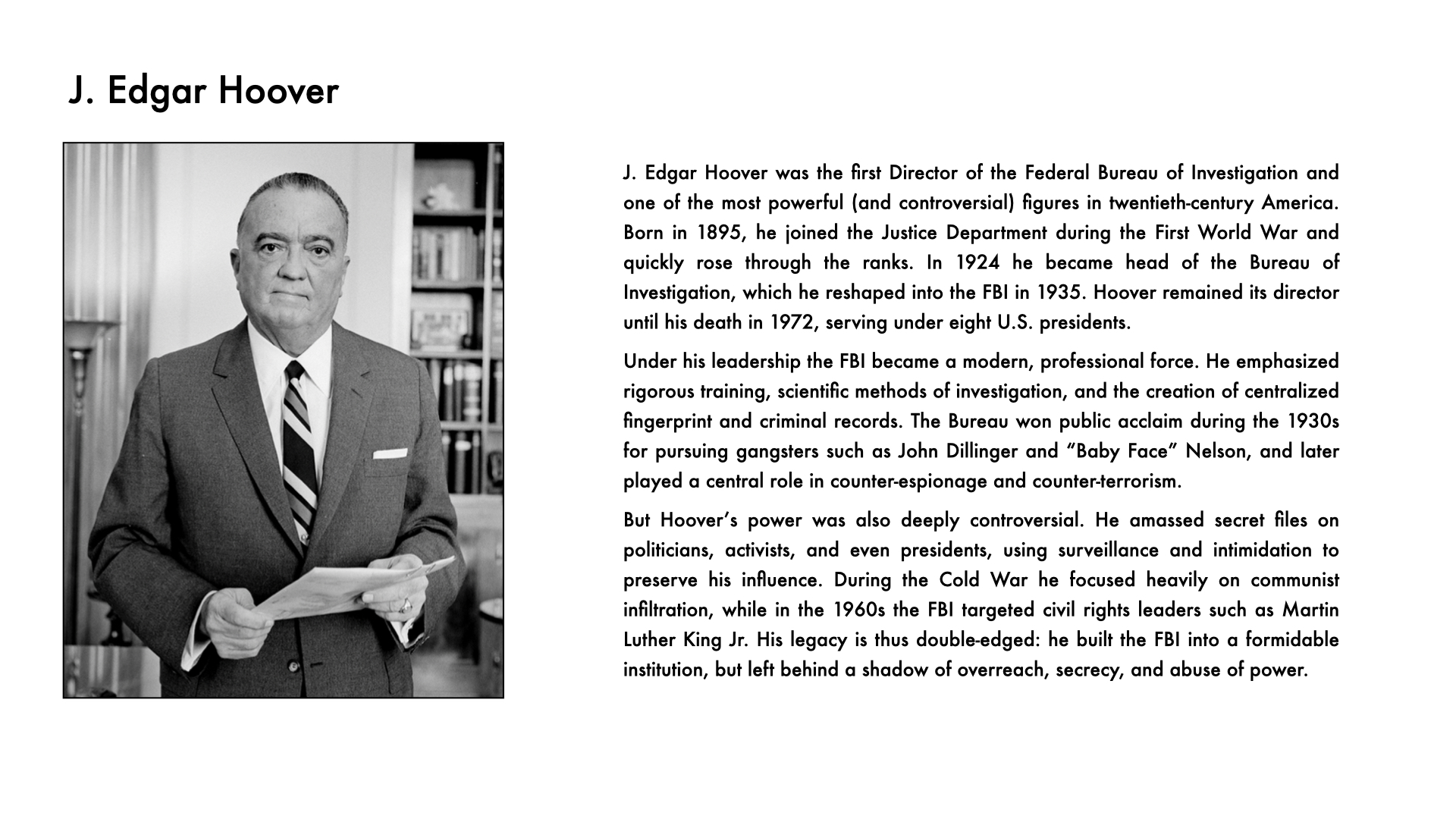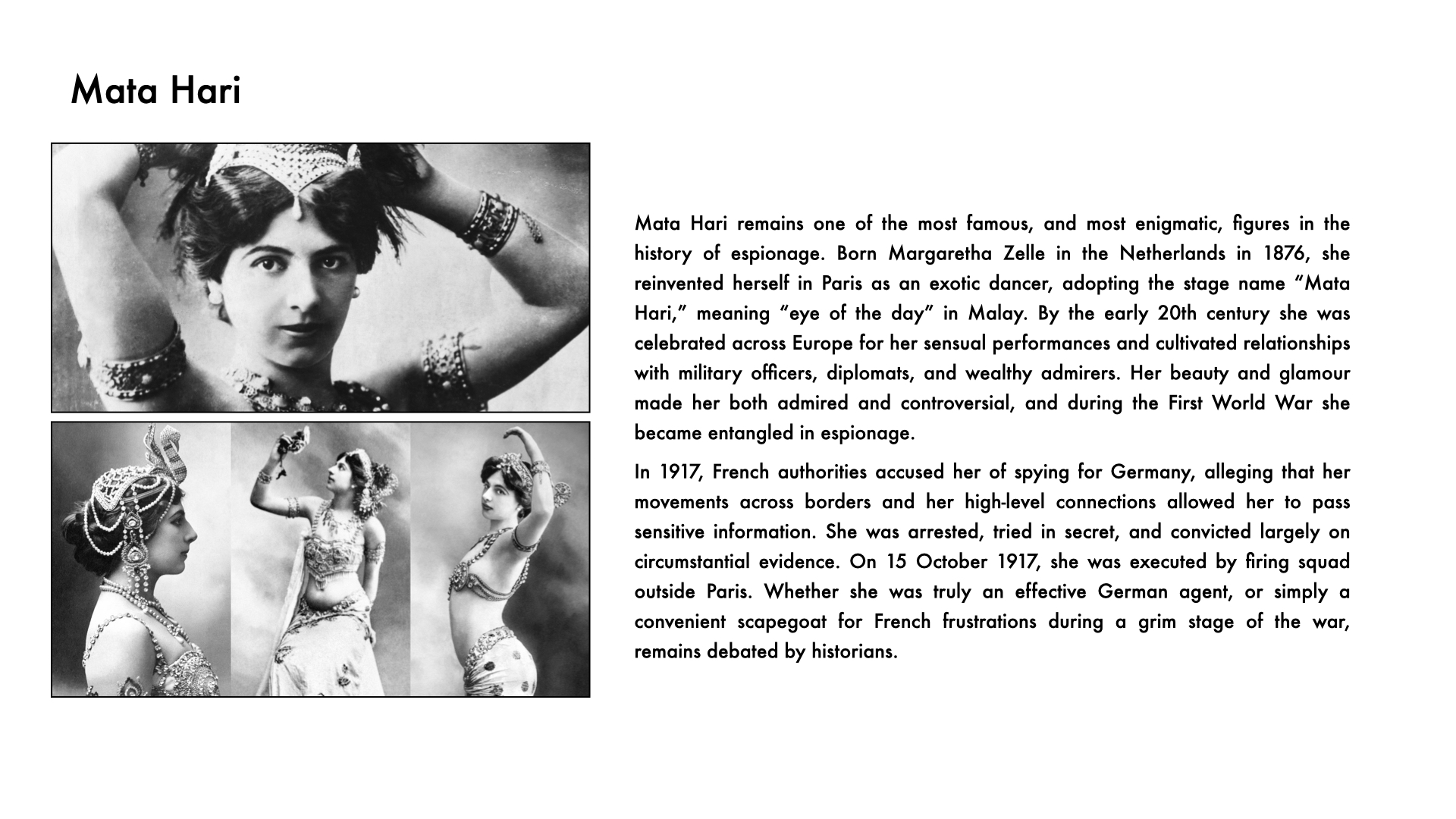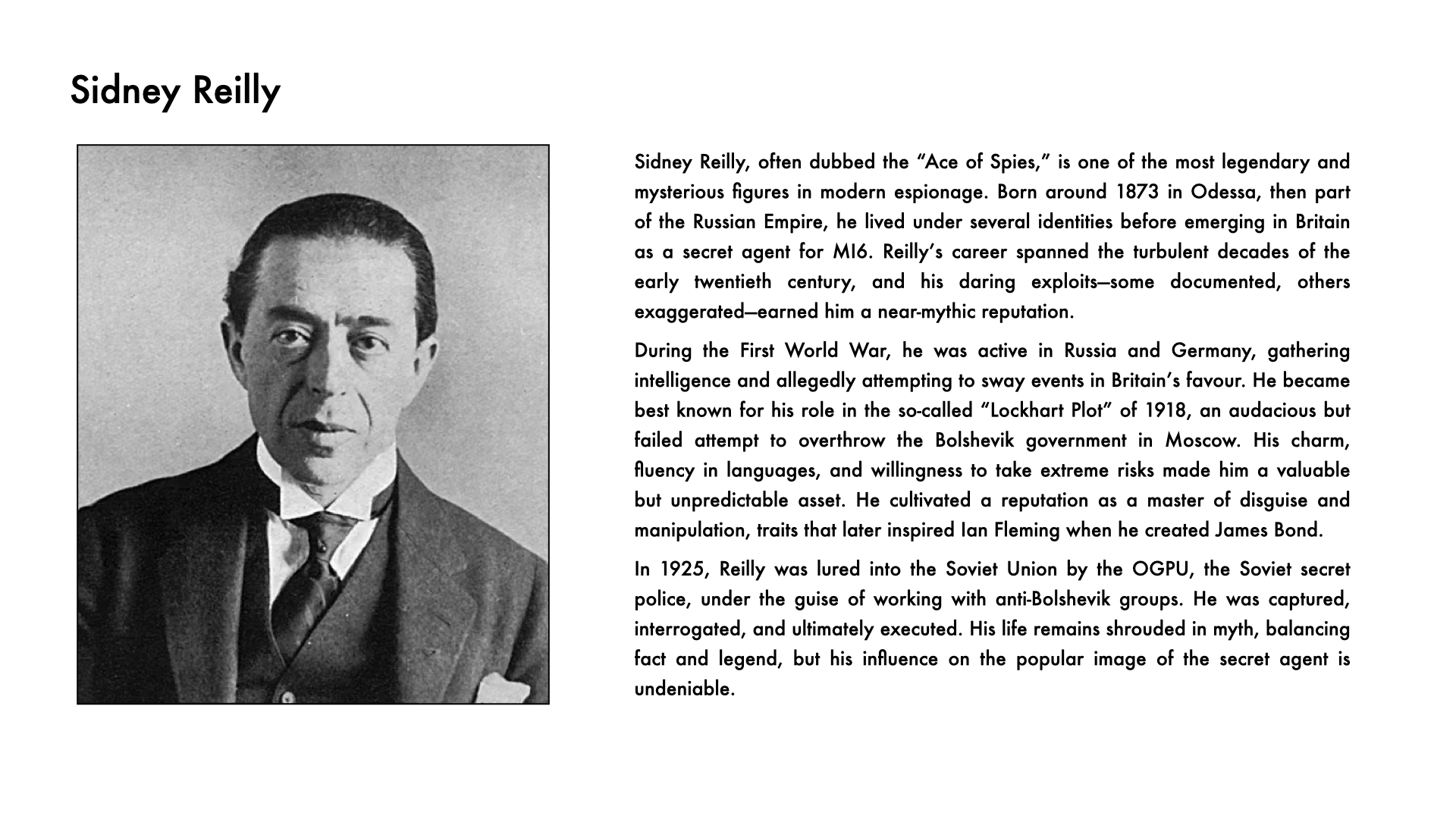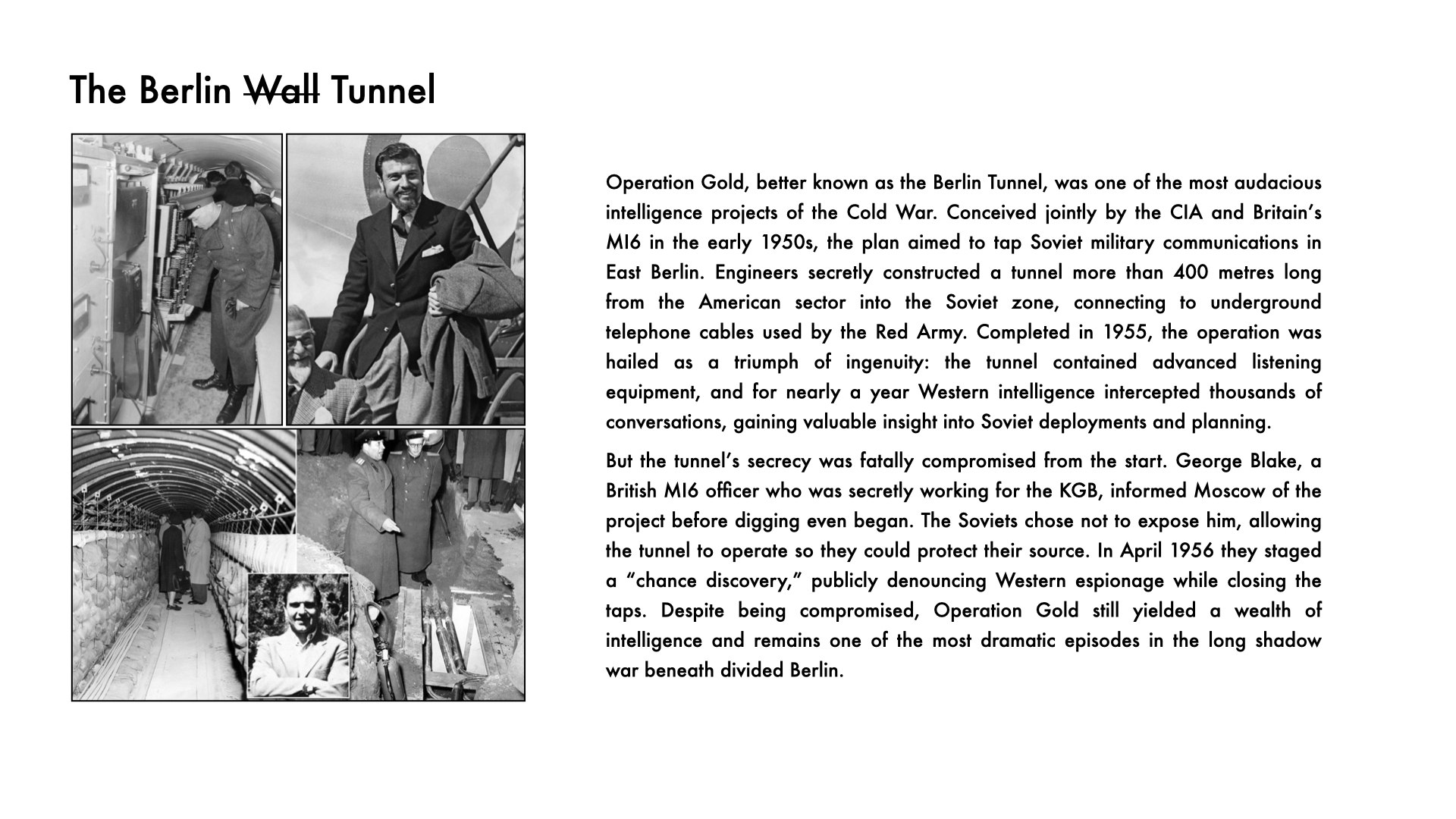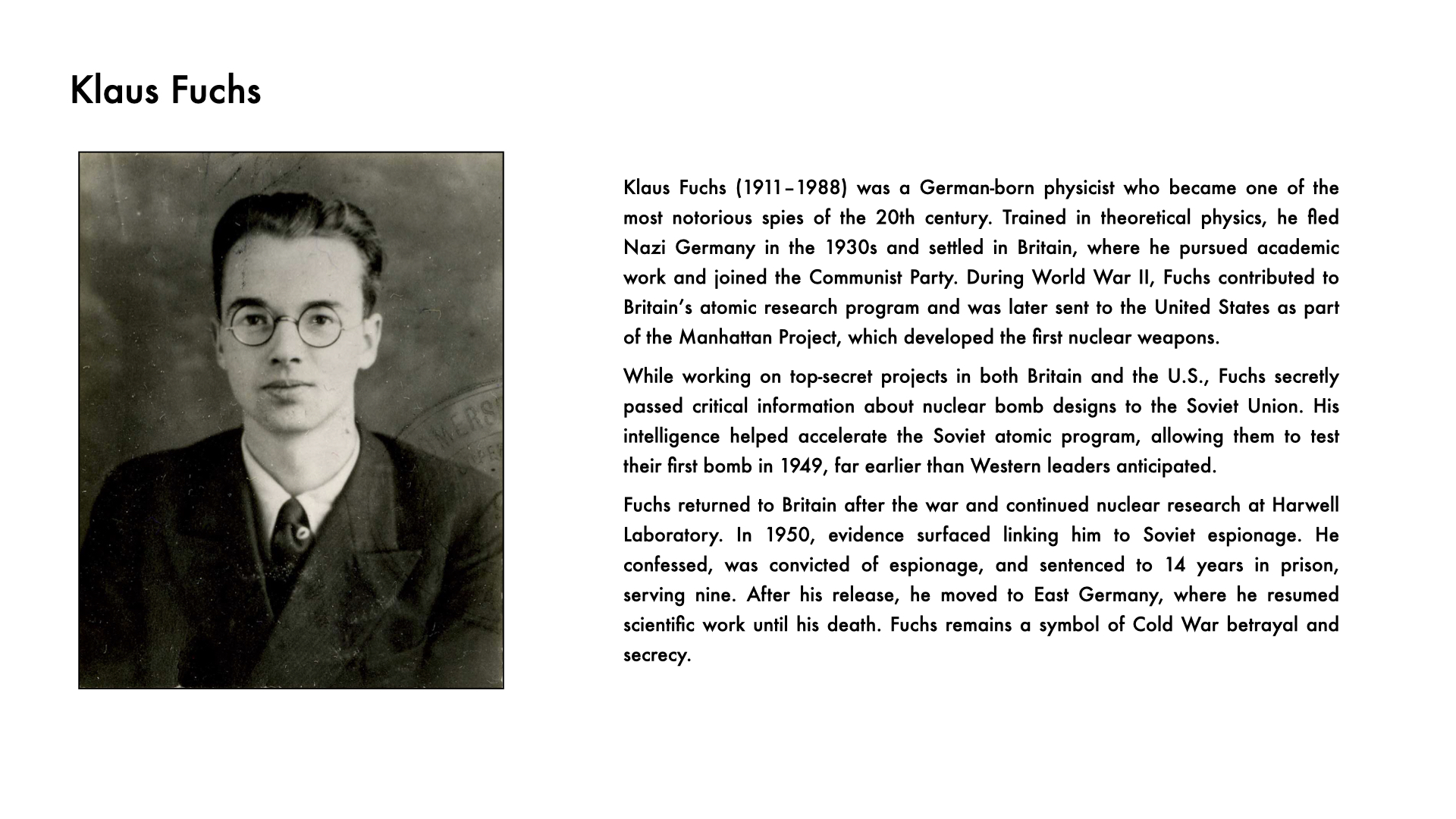Week 0️⃣ 2️⃣
Dame Stella Rimington
🔊 Audio
📜 Show transcript
Dame Stella Rimington is remembered as the first woman to lead MI5, Britain’s domestic security service. Interestingly, “MI5” isn’t even the official name — it’s a leftover from the days of “Military Intelligence, Section 5” in the First World War. Today, the Service’s formal title is the Security Service, but “MI5” has stuck in the public imagination. Its headquarters are at Thames House on the South Bank of the river in London, a landmark of British intelligence much like the FBI headquarters in Washington.
MI5 is often compared to the FBI in the United States: it focuses on threats inside the country such as counter-espionage and counter-terrorism. MI6, by contrast, is the overseas arm of British intelligence, much closer in role to the CIA. That’s the agency most often linked with the fictional spymaster “M” in James Bond. And while she headed MI5 rather than MI6, Dame Stella was widely said to have inspired the modern portrayal of M by Dame Judi Dench.
She joined MI5 in the late 1960s, when it was still a secretive, male-dominated world. She built her career on Cold War counter-espionage and later on tackling Irish Republican terrorism. In 1992, she broke new ground by becoming the first female Director General of MI5, and the first head of the Service ever to be publicly named. That openness marked a cultural shift, making MI5 more accountable in a way more familiar to the American FBI.
After retiring in 1996, Dame Stella reinvented herself as a novelist, writing spy thrillers based on her insider experience. She died on 3 August 2025, aged 90. Her career broke barriers, modernized the Security Service, and left a legacy that blurred the line between real intelligence and its portrayal on the screen.
📽️ Slideshow
📺 Video
🔑 Key Vocabulary
- Assassination: the killing of a prominent person for political or strategic reasons
- Bunker: a reinforced secure structure, often underground
- Cipher: a method of disguising writing so only someone with the key can read it
- Codebreaking: solving secret codes and ciphers to reveal hidden messages
- Counter-espionage: efforts to detect and stop enemy spies
- Decryption: turning coded text back into its original form
- Defection: abandoning one’s country or organisation to join another, often an enemy
- Disguise: altering appearance or identity to conceal who you really are
- Double agent: a spy who pretends to work for one side while secretly working for the other
- Espionage: the practice of spying to gather secret information
- Infiltration: secretly entering or joining an organisation to gather information
- Intercept: secretly capturing communications, such as letters or phone calls
- Legacy: the lasting impact or reputation someone leaves behind
- Network: a group of people linked for secret communication or action
- Plot: a secret plan to commit an illegal or violent act
- Recruitment: persuading someone to work as a spy or agent
- Ricin: a deadly poison extracted from castor beans, used in the Markov case
- Sabotage: deliberate destruction to weaken an enemy’s resources or plans
- Spymaster: a person in charge of directing a network of spies
- Surveillance: close observation of people, places, or communications
💬 Conversation Questions
- Would you ever trust a double agent? Why or why not?
- Do you think governments should be allowed to intercept private messages?
- What’s more dangerous: espionage from foreign countries or threats from within?
- How would you feel if you found out you were under surveillance?
- What would you do if someone tried to recruit you as a spy?
- Which spy gadget would you most like to use in real life?
- Do you believe ordinary people should worry about online privacy?
- Would you rather work for MI5, MI6, the CIA, or another agency? Why?
- What makes someone a good spymaster or leader?
- Do you think spy stories in movies are realistic, or mostly fantasy?

